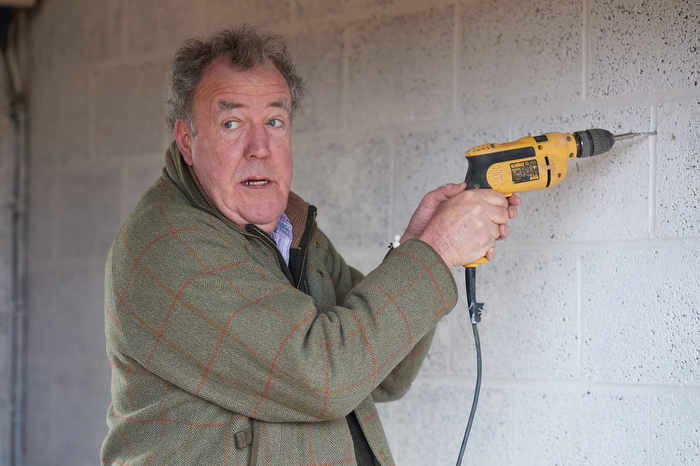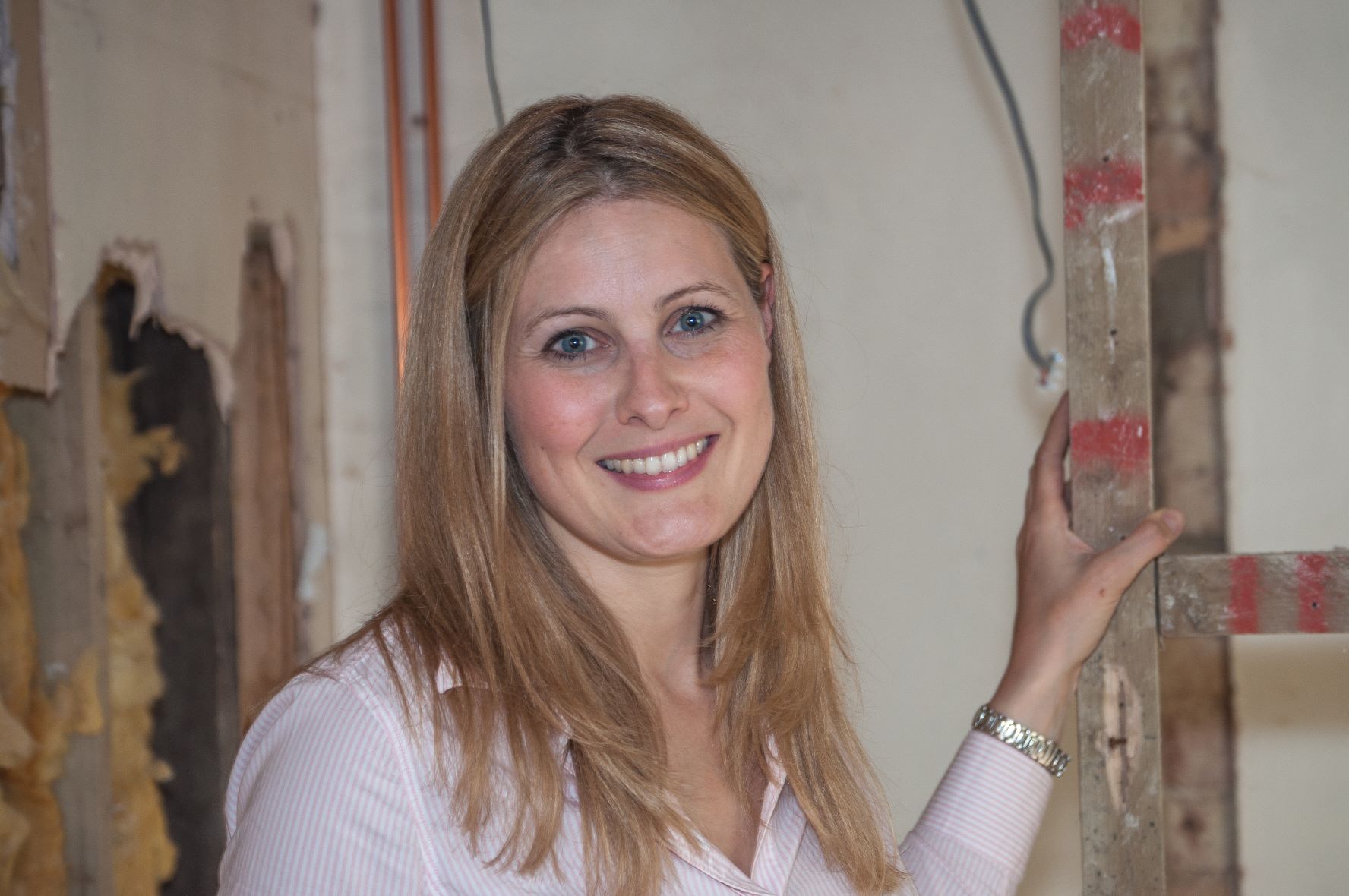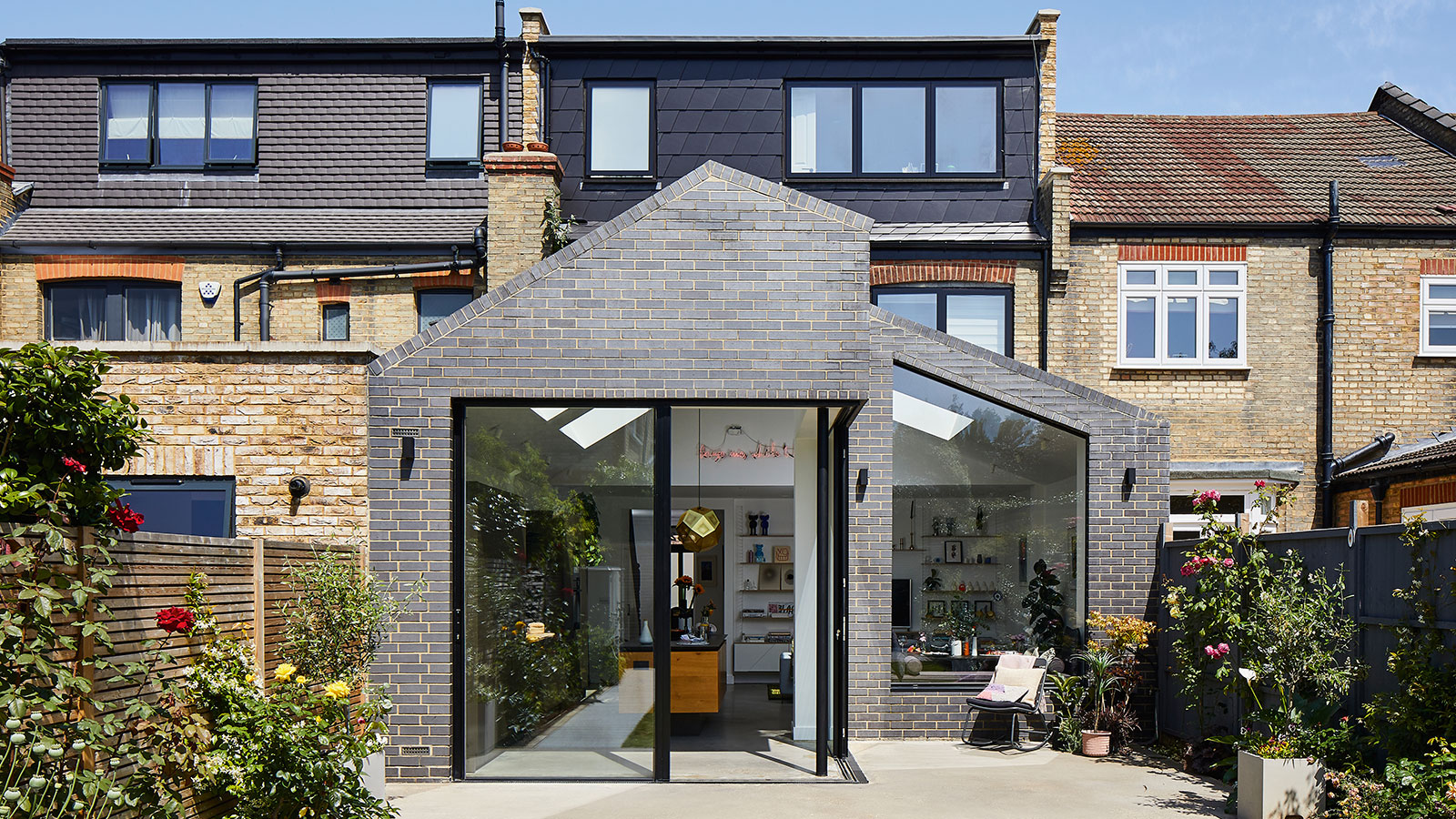Why Jeremy Clarkson dropped his planning battle with council despite finding "loophole"
Jeremy Clarkson has written to the council to say he no longer wishes to open a new restaurant at Diddly Squat Farm, also confirming what his planning "loophole" was in the letter

Bring your dream home to life with expert advice, how to guides and design inspiration. Sign up for our newsletter and get two free tickets to a Homebuilding & Renovating Show near you.
You are now subscribed
Your newsletter sign-up was successful
Jeremy Clarkson has withdrawn from his planning battle against his local council, saying he no longer plans to open a restaurant.
The Clarkson's Farm star opened the Diddly Squat restaurant using a planning "loophole" in August last year, shortly after an earlier planning permission application for another restaurant near his farm shop was rejected by West Oxfordshire District Council.
The council closed the restaurant down and launched enforcement action against the 62-year-old, claiming that the presenter had ignored several warning notices that stated he was in breach of planning regulations.
Neither Clarkson nor the council clarified specifically why the restaurant was in breach, but the council did tell Homebuilding & Renovating that it was investigating whether the restaurant's opening was "compliant".
Now it seems Clarkson has pulled out of opening a restaurant altogether. We look at why he's decided to wave the white flag, the grounds on which planning was refused and what the initial planning "loophole" Clarkson referred to might have been.
Why has Clarkson changed his mind about opening the restaurant?
Explaining his decision in a letter to West Oxfordshire District Council, he said: "On the farming front, I had read about something called mob grazing. This is a highly ecological way of rejuvenating the soil, using the muck from hens and cows, rather than chemical fertilisers.
"The problem was that if I sold the cows in the conventional way, I'd lose about £200 on each one. So I decided that to make a profit, the beef should be cooked and served in a restaurant, which I'd create by converting our lambing barn.
Bring your dream home to life with expert advice, how to guides and design inspiration. Sign up for our newsletter and get two free tickets to a Homebuilding & Renovating Show near you.
"Permission for this was refused and our attempts to get round the problem by using permitted development rights, and opening up in our so-called Lowland Barn were thwarted by the enforcement notice we are appealing.
"As a result of this, I've had to sell most of the cows I bought. And now I'm back to using chemicals. I no longer wish to open a restaurant."
The letter made up part of his appeal against the enforcement notice, although Clarkson is still pursuing permission to expand car parking at the site.
In the letter, he added: "We do not wish to expand the on-site businesses any further. We are perfectly happy with what we have. A little shop, and the lambing barn, which can be used for lambing in the spring and as a place for people to sit in the summer while they have food and a glass of our own beer from the mobile van.
"Then they go home with a little something they bought in the shop. Contrary to some of the claims being made, I do not want to turn Diddly Squat Farm into Disneyland. It is, after all, where I live.
"But we really do need on-site parking. It's vital. And lavatories."
Why was Clarkson's restaurant shut down?
The council did not list specifics for closing the restaurant but said the restaurant's "nature, scale [and] siting is unsustainable and incompatible with its countryside location within the Cotswold Area of Outstanding Natural Beauty."
The council also called use of the farm, its farm shop and the restaurant "unlawful", without elaborating further, except to demand that the farm must cease selling any products except those either made on the farm or within a 16-mile radius.
“Council officers have worked with the owner and planning agents of the business, over many months, to investigate breaches in planning control, advising on how the business can be operated in a lawful way and trying to reach a solution," the council said in a statement at the time.
“The business continues to operate outside the planning permissions granted and advice has been ignored. The activity has also had a significant impact on the local community.”
Jeremy Clarkson's planning agents disagreed with the council's claims, saying the requirements that the council had demanded were "excessive".
They added that some details the council had provided, such as a map, were incorrect and also complained that the council had given them too short a time-frame to undertake the measures, only allowing them six weeks. Six months would be more appropriate given what they were asking, they added.
Could the Diddly Squat restaurant reopen?
Technically speaking, if Clarkson's appeal against the enforcement notice succeeded, this would pave the way for the restaurant to reopen and Clarkson's planning team has previously claimed the notice to close down the restaurant "should be quashed" due to elements of their demands being incorrect as well as the timeframe to implement them being far too short.
Papers served by the planning department at the council do seem to corroborate this, showing that an appeal from Clarkson and his team has been accepted and will be heard in due course.
However, it has always been unclear how long this process could take and as Clarkson has eluded to in his recent letter, it is perhaps now irrelevant whether the appeal succeeds or not as the impact to his business and those whose livelihoods depend on it has already been felt.
Why was the council investigating the restaurant?
The council originally said it was investigating Jeremy Clarkson's restaurant to see if it was "compliant".
It previously told Homebuilding & Renovating in a statement: “The Council was made aware of the restaurant opening at Diddly Squat Farm. As part of our standard operating procedure we have been looking into the operation to ensure it is compliant with local and national planning law and policies, as well as licensing and food hygiene regulations."
Why was Clarkson's planning permission refused?
Jeremy Clarkson applied for planning permission for a restaurant near his Diddly Squat farm shop near Chadlington, Oxfordshire, in September 2021.
His proposal was for "conversion of an existing building", part of which was used as a farm shop as well as a new parking area and storage compound. It also covered landscaping works and a realignment of the existing access to the area.
The planning application was met with 53 objections from local residents as well as 12 letters of support and councillors decided in January that the project would be refused permission.
Rejecting the proposals, West Oxfordshire District Council said the plans would be "visually intrusive" and have a "harmful impact" on the area, which falls inside the Cotswolds Area of Outstanding Natural Beauty (AONB). It also said the plans were not "compatible" with the existing farming business, nor were they "sustainable".
Clarkson called the decision "a very bad day for farming" and asked for an overhaul of the planning rules, saying the council had been influenced by villagers.
What was Clarkson's planning "loophole"?
In July 2022, Jeremy Clarkson announced that he had found a "delightful little loophole" that meant he could open his new restaurant on another part of his farm, a few months after the initial application was rejected. This was in a lambing shed in a nearby field that he said "met different criteria". As a result he said they only needed to notify the council, rather than requiring permission.
He added that finding the loophole and "thwarting the council" was "satisfying".
Jeremy Clarkson then invited the public to book a table at the restaurant on Twitter, saying: "I’m thrilled to announce that you now have a chance to try the amazing food we grow and rear on my farm at the brand new (but quite rustic) Diddly Squat Restaurant."
The new restaurant had seven tables outdoors with Clarkson serving food "mostly grown or reared on the farm". There was also what Clarkson called a "VIP" table, which was inside a Shepherd's Hut and had sheepskins on the chairs.
What might the planning "loophole" have been? We believed, and reported at the time, that Jeremy Clarkson and his Diddly Squat team must have made use of permitted development rights and his most recent letter to the council, Clarkson does appear to confirm that this was how he did it, saying "our attempts to get round the problem by using permitted development rights and opening up in our so-called Lowland Barn were thwarted by the enforcement notice we are appealing."
Class R of the Town and Country Planning Order enables a change of use of an agricultural building to have "flexible commercial use" as a restaurant.
It states: "Development consisting of a change of use of a building and any land within its curtilage from a use as an agricultural building to a flexible use falling within Class A1 (shops), Class A2 (financial and professional services), Class A3 (restaurants and cafes), Class B1 (business), Class B8 (storage or distribution), Class C1 (hotels) or Class D2 (assembly and leisure) of the Schedule to the Use Classes Order."
However, quite clearly it didn't work.
How might Clarkson have fallen foul of the rules?
If Jeremy Clarkson opened his restaurant under Class R, permitted development rights, there are certain restrictions he would need to satisfy.
If the new restaurant fell foul of one of these restrictions, something which the council's investigation could have centred on, then the restaurant would have to close as it would not be allowed under permitted development.
Restrictions where permitted development would no longer apply include:
- If the agricultural building was not used solely as such on 3rd July 2012
- The site was a military explosives storage area
- The building is a listed building
- If the area of change of use exceeds 500 square metres
There are also many more criteria to Class R that would need satisfying.

Amy spent over a decade in London editing and writing for The Daily Telegraph, MailOnline, and Metro.co.uk before moving to East Anglia where she began renovating a period property in rural Suffolk. During this time she also did some TV work at ITV Anglia and CBS as well as freelancing for Yahoo, AOL, ESPN and The Mirror. When the pandemic hit she switched to full-time building work on her renovation and spent nearly two years focusing solely on that. She's taken a hands-on DIY approach to the project, knocking down walls, restoring oak beams and laying slabs with the help of family members to save costs. She has largely focused on using natural materials, such as limestone, oak and sisal carpet, to put character back into the property that was largely removed during the eighties. The project has extended into the garden too, with the cottage's exterior completely re-landscaped with a digger and a new driveway added. She has dealt with de-listing a property as well as handling land disputes and conveyancing administration.
